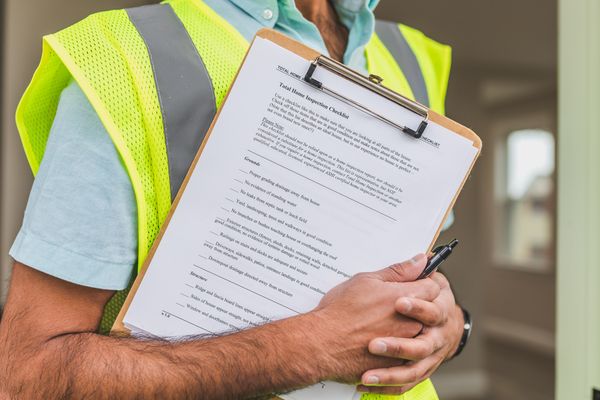Florida, with its year-round sunshine, pristine beaches, and a myriad of recreational activities, is a sought-after destination for homeowners and investors. But with the constant ebb and flow of the real estate market, timing your purchase can significantly impact the value you get. So, when exactly is the best time to buy a house in the Sunshine State?
Understanding Florida’s Real Estate Cycle
Before determining the optimal buying window, it's essential to understand Florida’s unique real estate cycle. Unlike many Northern states, where the seasons often dictate market activity, Florida's cycle is influenced by a combination of weather patterns, tourism, and the migration of snowbirds – northerners who head south to escape winter’s chill.
Best Months for Value: August to October
After analyzing years of sales data, a trend becomes apparent: August to October emerges as a favorable period for buyers. Here’s why:
End of Hurricane Season
While Florida is stunning, it's also prone to hurricanes. By late summer and early fall, many sellers who haven't yet closed a deal might be eager to do so before another potential storm. This urgency can result in price reductions.
Snowbirds Haven’t Landed
Snowbirds typically flock to Florida from November onwards. Buying before this influx ensures less competition, which can equate to better prices and more room for negotiation.
End of the Tourist Peak
Summer is a popular time for tourists in Florida. By the time late summer and early fall roll around, the crowds have dwindled, allowing potential buyers to navigate open houses and explore neighborhoods with ease.
The Holiday Slowdown: A Hidden Opportunity
The period between Thanksgiving and New Year's can also be a good time for potential buyers. Many sellers are keen to close deals before year's end for tax reasons. Furthermore, with fewer buyers in the market during the holiday season, those who are shopping may find themselves with more leverage in negotiations.
When Demand Peaks: February to May
On the flip side, February to May is when the real estate market in Florida experiences a surge in demand. With the arrival of spring, snowbirds, and other potential buyers, competition intensifies. Sellers are less likely to budge on prices during these months, making it a less-than-ideal time for those looking for a bargain.
Factors to Consider
While these trends offer a general guide, individual circumstances can affect the best time for you to buy. Here are a few factors to consider:
Interest Rates
Historically low interest rates can offset higher property prices. If you can lock in a good rate, it might be worth buying, even during high-demand periods.
Your Personal Financial Situation
Always assess your financial health. Having a robust credit score and a substantial down payment can put you in a strong position, regardless of the market's state.
Property Type and Location
Certain areas in Florida, like Miami or Orlando, may have micro-market trends due to factors like new job opportunities or local tourism booms. Always research the specific region or type of property you're interested in.
Navigating Florida’s Unique Market Elements
Florida's real estate market is also affected by unique elements not always present in other states:
Retirement Communities
Florida is a haven for retirees, and this has led to the creation of vast retirement communities, like The Villages. The demand and pricing for homes within these enclaves can operate somewhat differently from the broader market.
International Buyers
Areas like Miami are hotspots for international buyers. These buyers can sometimes affect market demand, especially for luxury properties. Currency exchange rates, international politics, and global economic factors can all influence their buying patterns.
Waterfront Properties
Given its extensive coastline and numerous lakes, waterfront properties in Florida are both desirable and plentiful. However, they also come with their considerations, such as higher insurance costs and potential risks from sea-level rise or hurricanes.
Additional Considerations
School Enrollment
Families often time their home purchase so they can settle in before a new school year begins. So, while summer might be a peak tourist season, the months leading up to it can be a good time for families to purchase, ensuring a smooth transition for their children.
Tax Implications
Florida is known for having no state income tax, which can be a draw for many buyers. However, property taxes, homeowner association fees, and other local levies can vary. It's essential to get a full picture of all potential costs associated with a property, not just the purchase price.
Local Events & Developments
Florida frequently hosts significant events, from international boat shows to art fairs. Additionally, new developments and infrastructural projects can spike interest in certain areas. Being aware of these can help you gauge when interest, and potentially prices, might rise.
Conclusion
Understanding the intricate dance of factors like median sale price, housing inventory, and mortgage rates is vital for both homebuyers and real estate investors. As home prices sway with housing demand, and mortgage lenders adjust their mortgage interest rates in tandem, it becomes increasingly paramount to consult with an experienced real estate agent. They possess the nuanced insight into the real estate business, ensuring that every real estate transaction is navigated with expertise.
While the allure of a Florida house remains undeniable, diving into the real estate market without the right guidance can be overwhelming. Between the intricacies of housing inventory, shifting sales prices, and the fluctuating desires of real estate investors, the importance of partnering with a knowledgeable real estate agent can't be overstated. They serve as the compass, guiding homebuyers through the vast sea of the Florida housing market, ensuring every real estate transaction culminates in success.






